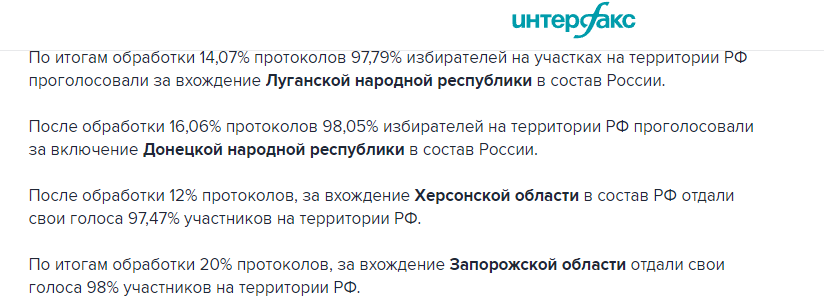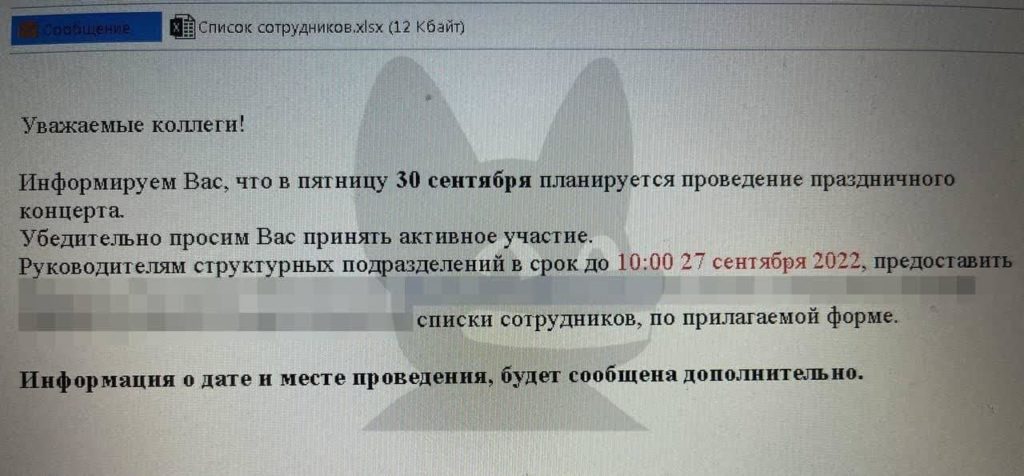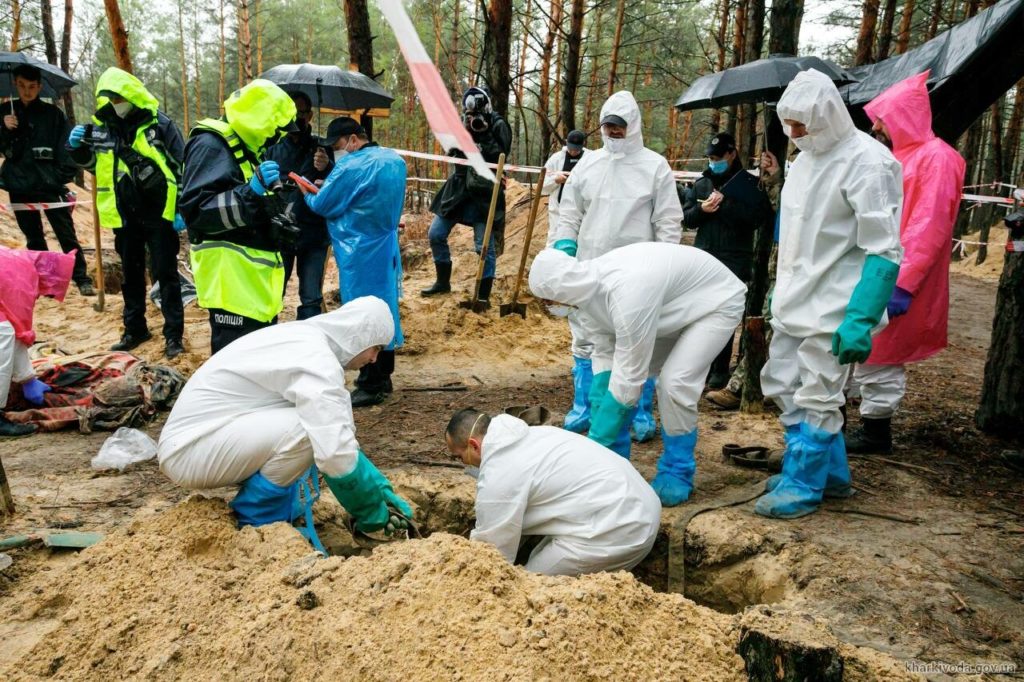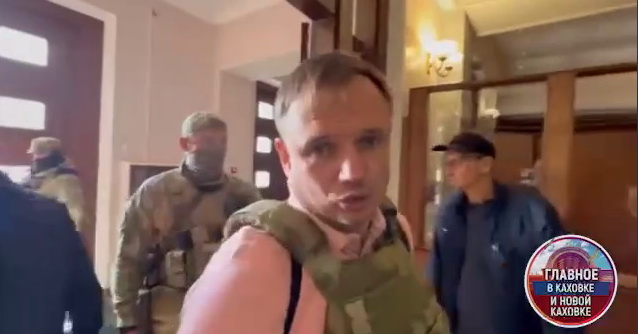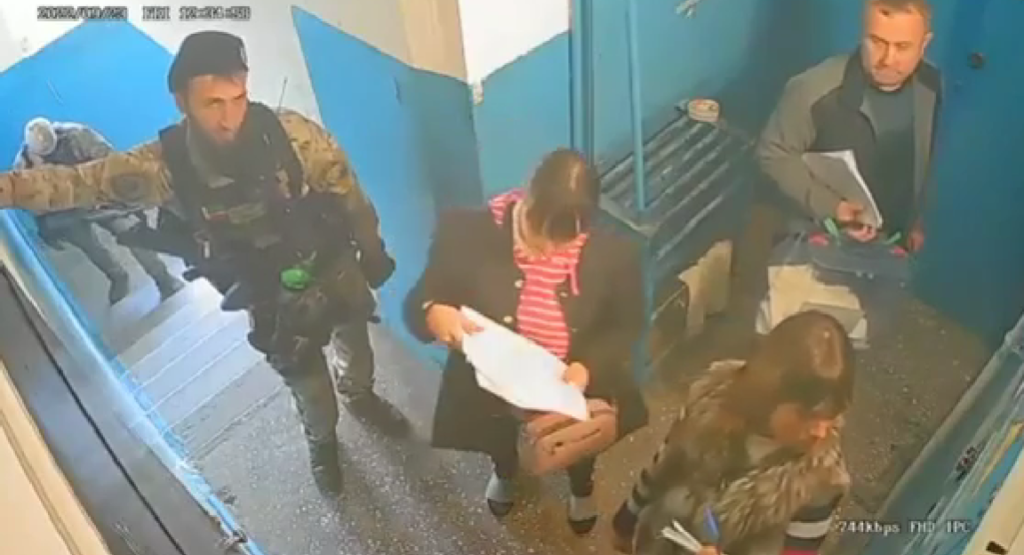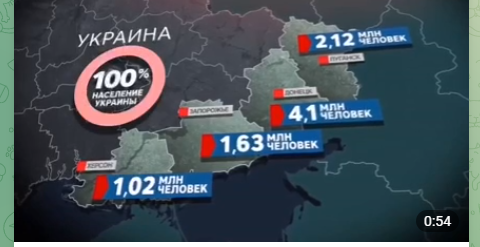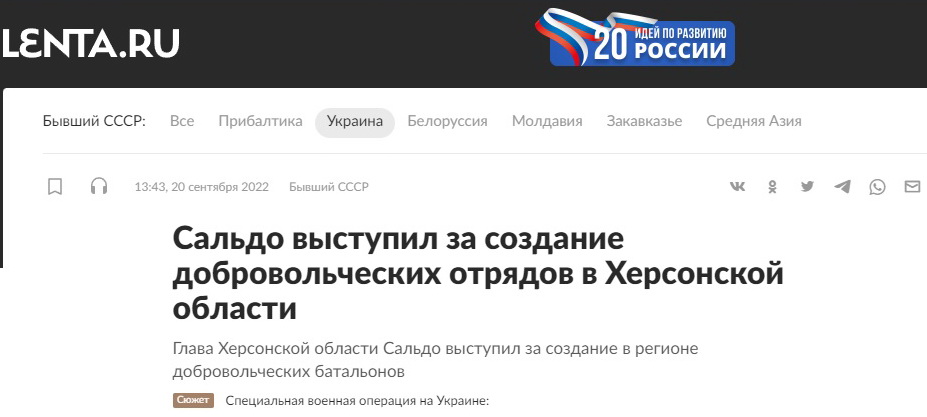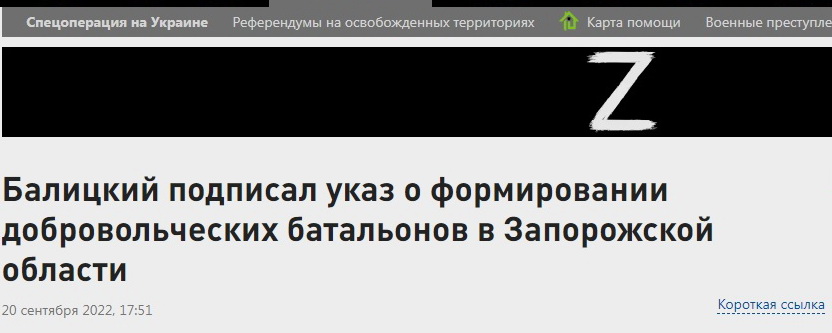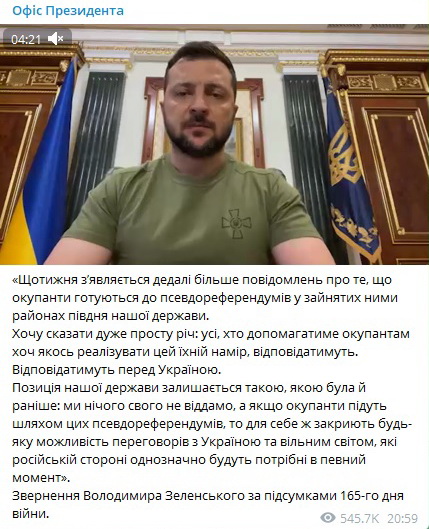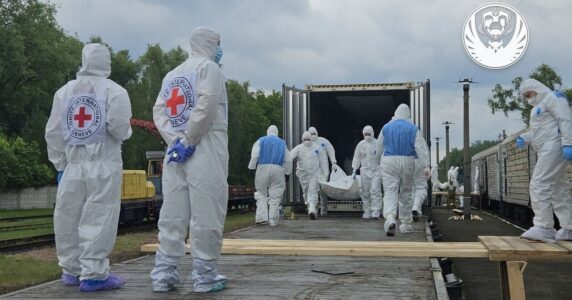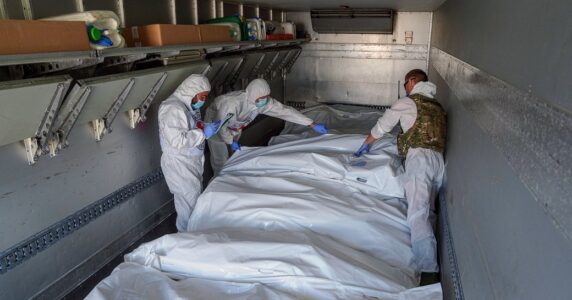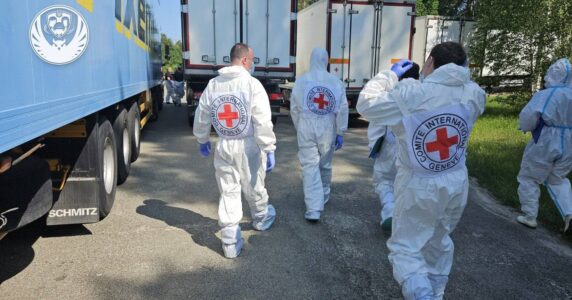Navigation and useful materials
Five days. That is how many days Russian occupiers allocated to hold pseudo-referenda in the occupied Ukrainian territories. The Russian propaganda machine will present the stunning “results” of this so-called “expression of will” as evidence of the “total support” for Russia by the population of the occupied areas of Kherson, Zaporizhzhia, Donetsk, and Luhansk oblasts. And for the Kremlin, they will be sufficient grounds for another annexation.
On the evening of the last day of the “vote” — September 27 — the official Russian media and pro-Kremlin Telegram channels began to summarize the results of the “preliminary count” of votes.
It seems that 70% of the voters and 70% of the votes “in favour,” which the Russian political technologists suggested, were not enough for the organizers of the pseudo-referenda. Thus, the legalization of even more fantastic results started spreading in the information field. Unfortunately, even some reputable Western media were relays of this propaganda.
Meanwhile, the Russian media in doses publish insiders from sources close to the authorities about Putin’s planned addresses to the Federal Assembly on September 30 and large-scale celebrations in Moscow with the participation of artists supporting the war. Screenshots of orders for budget institutions to ensure attendance at the concert spread in the social networks.
Obviously, the scenario is approved, and the Kremlin plans to bring it to the planned climax.
What is Wrong with Russian Pseudo-Referenda?
The organization and conduct of such “voting” in the occupied territories is another manifestation of total legal nihilism. After all, the Kremlin once again violates the norms of international law:
● pseudo-referenda, as well as occupation, are a direct encroachment on the sovereignty and territorial integrity of Ukraine. This is a blatant violation of the principles of the UN Charter, the Declaration on Principles of International Law, and the Final Act of the CSCE, also known as the Helsinki Accords;
● Russia violates Art. 43 of the Fourth Hague Convention on the Laws and Customs of War on Land, which obliges the occupier’s state in the occupied territories to comply as much as possible with the national legislation of the state whose territory is occupied;
● Russia violates Art. 21 of the Universal Declaration of Human Rights, thereby violating the right of citizens of Ukraine to participate in the governance of their state.
Pseudo-referenda are also worthless from the perspective of Ukrainian legislation. After all, Article 73 of the Constitution of Ukraine provides that the issues of changing the territory are decided exclusively by all-Ukrainian referenda.
Russians do not pay attention even to their own legislation, which prohibits voting during hostilities. The tight time frame between the announcement and the date of the referendum is also ignored.
To ensure the desired result, the occupiers resort to terror against the civilian population. Russian propagandists have doubled their efforts to create a “picture” that they present to their own audience and try to “sell” to the foreign audience. Media and Telegram channels are full of polling station videos and statements from locals who allegedly “dreamed all their lives” about “becoming part of Russia.” Maybe some of them say that sincerely. But it is difficult to perceive the words of people who are asked questions at gunpoint.
Moreover, violence and extrajudicial executions are not something strange for the occupiers. Ukrainian law enforcement officers identify numerous torture chambers and collect testimonies of residents about war crimes in the liberated settlements of Kharkiv Oblast, where Russians also planned to hold “voting.” The mass burial in Izium is a clear example of how preparations for the pseudo-referendum were carried out in the occupied territories.
Even the staged videos include footage of armed military personnel in “voting” places.
To engage as many people as possible in the shameful show, Russian occupiers set up polling stations in the courtyards of residential buildings and went through the flats. Members of “election commissions” were accompanied by the military.
Their presence is not just an element of psychological pressure. According to the Media Initiative for Human Rights, Russian occupiers resort to physical violence and destroy the property of Ukrainian citizens who dare not support the annexation.
The Kherson publication “MOST” reported how residents of the city were caught on the streets and forced to put a mark in the ballot.
Bringing people for crowd scene from other regions, repeated “voting,” and violation of its secret are far from a complete list of tools which Russians and local collaborators used to get a result. However, terror and propaganda remain the main means of control.
Why does the Kremlin need pseudo-referendums in the occupied territories?
Unlike in 2014, the Russians are no longer staging “popular uprisings” against the “Kyiv junta” and are not hiding their openly aggressive intentions. Despite this, the Kremlin requires at least a semblance of “legitimate” rule, rather than occupation.Putin’s regime apparently sees the annexation as its own geopolitical victory, “raising the stakes” again.
- After the pseudo-referendums, the Russian political leadership and diplomats will appeal to the “will of the people” and refer to “convincing voting results.” Their legal nullity will not be taken into account;
- Russian propaganda will try to shift the attention of the foreign audience from aggression, occupation, and war crimes to “democratic procedures” and fake “expression of will”;
- Annexation allows Russia to talk about extending its nuclear sovereignty to the occupied territories;
- The struggle of Ukraine for the restoration of territorial integrity will be depicted by Russian propaganda as Russia’s fight against Ukrainian aggression, which will be used for the patriotic mobilization of the population. The Kremlin’s friends, hiding behind the smokescreen of “neutrality,” will be able to describe the situation as “conflict over contested territories.”
Why now?
After losing the strategic initiative on the front, Putin is in dire need of a substantial victory. He needs it right now, since Russians’ morale has been negatively affected by:
- the liberation of Kharkiv oblast from the Russian occupiers;
- the announcement of mobilization, which provoked protests in the regions and a mass flight of Russians abroad;
- the release of 215 Ukrainian soldiers, including 108 soldiers of the Azov Regiment, whom Russian propaganda depicted as the biggest Nazis in Ukraine, from captivity.
Thanks to the annexation of the occupied territories, the Kremlin will try to raise the level of support for Putin and strengthen the militaristic attitudes in Russia. Propagandists will compare the current Kremlin leader to Peter I, Catherine II, and other “gatherers of Russian lands.”
Annexation is also aimed at solving Russia’s demographic problems. The Kremlin is obviously counting on increasing the share of the Slavic element among the population through the forced Russification of Ukrainian citizens in the occupied territories. Propaganda already portrays the increase in the population of the Russian Federation at the expense of Donetsk, Luhansk, Kherson, and Zaporizhzhia oblasts as a key achievement of the so-called “special operation.” For the same purpose, Ukrainians, in particular children, are being deported to Russia.
Local men, whom Russia will declare as its citizens, can become a resource for forced mobilization. The occupation administrations are already talking about forming “volunteer battalions” to participate in the war against Ukraine.
Having declared the “inclusion” of the occupied territories into the Russian Federation, the Kremlin will try to bring Kyiv to the negotiating table and formalize the “gains.” Ukraine’s reluctance to make territorial concessions is used by the Russians to accuse the victim of aggression of “inability to negotiate.” The Kremlin is already sending signals about readiness for negotiations on its own terms through the Turkish Foreign Ministry. Having released some of Azov prisoners, Putin tried to demonstrate his ability to “make concessions” and “reach an agreement” to the world.
Russians’ haste can also be explained by the need to “sum up the success” right before deteriorating weather can significantly complicate Ukrainians’ offensive.
What are the expected consequences?
Both Ukrainian authorities and representatives of partner countries have reiterated multiple times that the Kremlin’s calculations are pointless. The President of Ukraine, Volodymyr Zelenskyy, clearly stated back in August that after the pseudo-referendums, negotiations with the Russian Federation would no longer be possible.
In an interview with the American channel CBS, published on September 26, Zelenskyy confirmed that Kyiv’s position remained unchanged.
Federal Chancellor of Germany Olaf Scholz, President of France Emmanuel Macron, President of Poland Andrzej Duda have made it unequivocally clear that the EU states would not recognize the results of the Russian pseudo-referendums. NATO Secretary General Jens Stoltenberg and US President’s Advisor Jake Sullivan made similar statements. The leaders of the Baltic countries called on the West to strengthen military support for Ukraine.
The Armed Forces of Ukraine have already demonstrated their ability to defeat the enemy and liberate the occupied territories. Declaring some areas “part of Russia” will not change the intentions to restore the territorial integrity of Ukraine.
Annexation will significantly weaken Russia’s already feeble international position. During the previous years, the Kremlin was able to convince the world to move on from the issue of Crimea. Today, the need to reckon with Putin’s whims at the expense of Ukrainian territories and international security, while undermining the foundations of the world order, seems groundless. The response of the global community to the annexation of the Ukrainian peninsula in 2014 did not stop the Kremlin from preparing for a full-scale invasion. Only the unity of the free world, consistent support for Ukraine and increased military aid can stop the dictator and save the lives of the people he kills every day.
If you have found a spelling error, please, notify us by selecting that text and pressing Ctrl+Enter.
